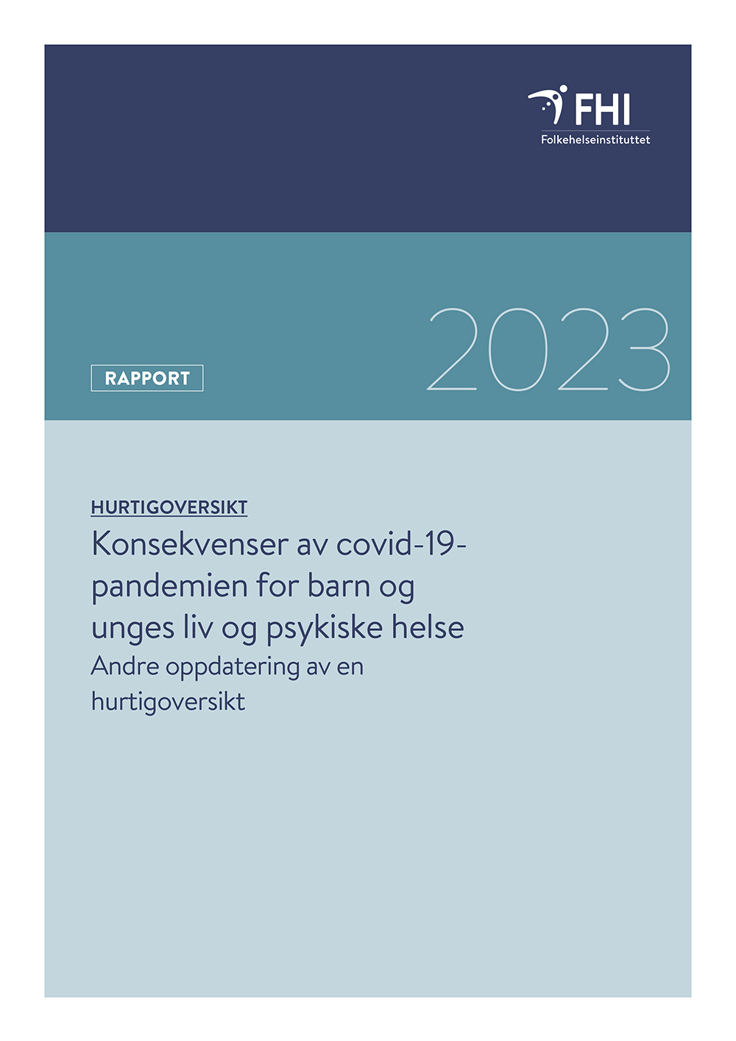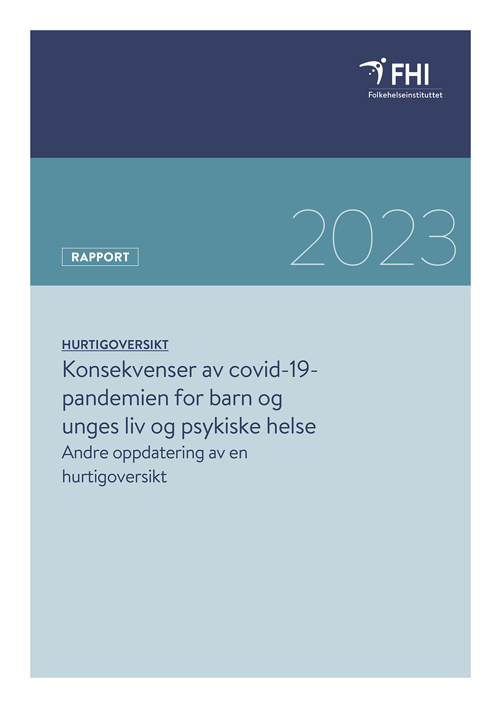Consequences of the Covid-19 pandemic on children and youth’s life and mental health: Second update of a rapid review
Systematic review
|Published
In this rapid review, we have summarized studies on the consequences of the COVID-19 pandemic for children and adolescents’ lives and mental health.
Key message
In this rapid review, we have summarized studies on the consequences of the COVID-19 pandemic for children and adolescents’ lives and mental health. It is the second update of a rapid review published in 2021. Due to the vast scope of included studies, in this update, we included only studies from the Nordic countries, except for studies about violence and abuse. This increases the directness of the findings. We included 89 studies, with longitudinal (n=65), qualitative (n=15) or mixed-method (n=9) study designs. The results are seen in relation to results from the two previous reviews. The main results show:
- Violence and abuse (n=63 including 10 Nordic): There are still indications of under-reporting during the pandemic. Nordic studies showed a decrease in reporting of violence during lockdown, but an increase back to “normal” after the pandemic restrictions were lifted.
- Family relationships (n=34): Findings indicate an association between parents' ability to manage stress and regulate emotions, and children's reactions to pandemic restrictions.
- Mental health (n=86): Results indicated reduced well-being and increased symptoms of anxiety and depression among children and adolescents over 10 years. Certain subgroups seemed to be more negatively affected during the pandemic.
- Help- and health services usage (n=15): Mental health services saw a decrease in consultations initially, then indications of an increase towards the end of the pandemic. Prevalence of eating disorders appears to have increased.
- Social health and relationships (n=25): The results show that many missed their friends in the beginning of the pandemic, but it is unclear if loneliness has increased.
- Learning, school and kindergarten (n=39): The study results showed large variations concerning experiences with home schooling and digital education as well as a possible learning loss. There were positive experiences from kindergartens.
For some thematic areas, the evidence based on data from 2020 is relatively good, while for other thematic areas there are large knowledge gaps. We need more studies with data from later stages of the pandemic in all areas.

